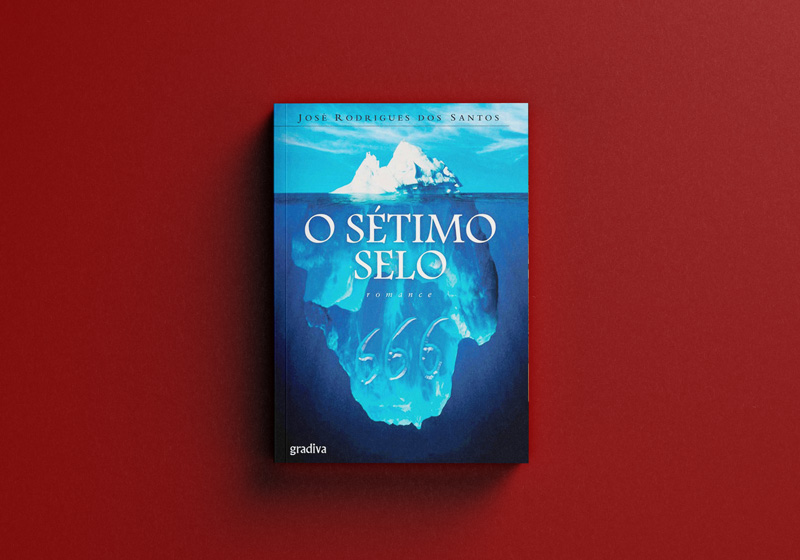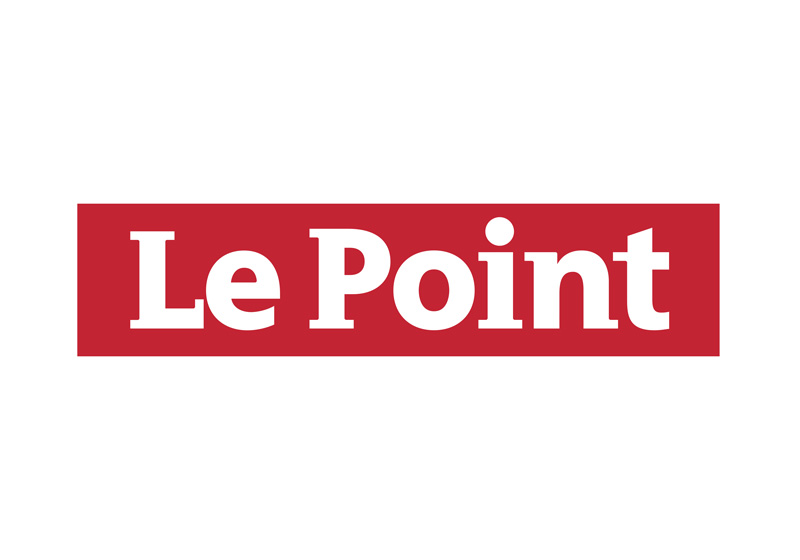Interview for Diário de Notícias
- You begin this book with a note about the accuracy of the technical information within and close it with a warning that Revelation’s seventh seal has already been broken and, therefore, the end of the world is fast approaching. Which is reality and which is fiction?
JRS: The Seventh Seal is a novel with accurate scientific information. The story is fiction, but the scientific information in it is not. That information has come out of climate and paleoclimate studies and recent discoveries concerning the state of world oil reserves. This is a novel about what the world will be like in ten or twenty years, still in our lifetime, and what the novel discloses is, undoubtedly, disturbing.
- You place the 21st century at the crossroads of continuing carbon emissions, which supposedly will bring about global warming and the subsequent destruction our planet, and the abandonment of oil as an energy source, something that, considering the delay in developing alternative energy sources, would throw us into a spiral of “recession, famine, looting, and chaos” similar to the Middle Ages. Don’t you think there is some catastrophism in this concept?
JRS: There is, indeed, but it does not arise from the novel. It arises from what is being found out about climate change and the actual state of oil reserves. Nine years ago, oil was costing 10 dollars a barrel. Now it costs 100. How much is it going to cost within ten years? 200? 300 dollars? Has anyone yet realized the impact this rise will have on the world economy? Does anyone believe that, in these circumstances, the word “catastrophe” is inaccurate? And what about climate change? The biggest mass extinction the Earth has undergone was the Permian extinction, 250 million years ago, when an abrupt rise of 6 Celsius degrees exterminated 95 per cent of all animals. By abrupt, I mean: in the course of ten thousand years. Did you know the UN panel has estimated that the planet’s temperatures will rise 6 Celsius degrees this century alone? Has anyone realized that we’re facing a temperature rise similar to the one that brought about the biggest mass extinction in the history of our planet, but even quicker? Knowing all this, how can someone think the use of the word “catastrophe” is an exaggeration?
- The planet may “fry in a few decades”, says one character in your novel. How many decades are we talking about?
JRS: Well, in a way the planet is already frying. Look at what happened in the summer of 2007 in Greece. Look at the increasing forest fires in the Iberian Peninsula. Look at the first big droughts in the Congo and Amazon rain forests. In some regions, it will take a decade or two. In others, three or four. But the scientific consensus is that soon half the planet will be covered by deserts. The Sahara is already crossing the Mediterranean to Southern Europe.
- Oil will be abandoned, either as a means of saving the planet, or because non-OPEC world reserves are close to the end. Why do you think new solutions are taking so long to be found?
JRS: Because the development of alternatives is a threat to the oil industry. The more expensive oil is, the better for them. The Saudis spend one dollar to extract each barrel of oil and they are now getting 100 dollars a barrel, which ensures them an enormous profit margin. Do you think producers want alternative energy sources? Do you know who the main financial contributors of George W. Bush’s presidential campaign were? The oil industry. Do you know where the Bush family made its wealth? In oil. Do you really believe that, in these circumstances, they would encourage solutions that would undermine the industry that feeds them?
- Doing nothing is delivering oneself to the OPEC, whose production peak may still take some two hundred years, whereas the Non-OPEC peak will be reached in the next five, ten years. How do you see a world at the mercy of the OPEC countries, specially the Middle Eastern ones?
JRS: That’s precisely where the problem lies: OPEC’s peak oil may be approaching. There is information coming out of Saudi Arabia to the effect that the giant camps of Ghawar and Safanyia are being seriously depleted. They produce 75 per cent of all Saudi oil. So, there’s a growing belief that OPEC has been fooling us all as far as the size of its oil reserves go. If this is indeed the case, the world will be taken by surprise when world oil, including OPEC’s, peaks. That’s why oil now costs 100 dollars a barrel. Has anyone realized the economic impact of this situation? If the world fell in recession in the 1970s due to temporary cuts in oil production, just imagine what will happen if these cuts become permanent, due to lack of oil…
- Throughout the novel you say that the three Persian Gulf wars, including the 2003 US invasion of Iraq, are a product of the need to redesign the Middle East map in keeping with the interests of the West, especially the United States, due to the lack of oil. Is this a political novel?
JRS. This is a novel with many levels. It is, indeed, political, in the sense that the search for solutions to these problems belongs to the political sphere. But The Seventh Seal is, above all, a novel about a world that is waiting for us around the next corner. And we need to know if we can survive the truck that is going to hit us around that corner.
- Your first three novels were about Portuguese subjects: the East Timor problem (“The Island of Darkness”), Portugal’s involvement in the First World War (“The Captain’s Daughter”) and Columbus as a Portuguese Jew (“Codex 632”). Now you’re focusing on global issues, like the Iranian nuclear crisis and the existence of God (“The Einstein Enigma”) and the lack of oil and global warming (“The Seventh Seal”). Are you targeting the international market now?
JRS: The subjects of my novels are universal. The Seventh Seal tackles a universal problem. I don’t want my novels to be viewed in the international marketplace as national literature, but as mainstream fiction.
- You usually do not accept being compared to Dan Brown, and yet your novel talks about the mysteries of Revelation, Kabalah, the Number of the Beast and the search for the Anti-Christ. Is this a wink to the market or an acknowledgement that, in fact, all of mankind’s dilemmas are somewhat connected to the old manuscripts, including the books compiled in the Holy Bible?
JRS: To be honest, I do not reject or accept comparison to Dan Brown. I just don’t care. What matters to me is that these novels will bring something new to my readers. The Seventh Seal is an action thriller with a love story, but it’s much more than that. Through the fictional story we learn true things about the world we live in. Some of these things have unexpected connections to ancient documents, such as the Bible and others, and I find it interesting to explore these connections.
- Don’t you think the world is a bit tired of books about Christ’s last supper, the Templars, assassin sects, the Opus Dei, the identification of the Anti-Christ and historical-religious conspiracies?
JRS: You’re right. That’s why The Seventh Seal is a novel about the future, not the past.
- Your writing is deeply focused on action, with scenes that link your books more to cinema than to traditional literature. Where did you get that technique from?
JRS: I suppose I got it from journalism. But I also attended courses on fictional scriptwriting when I worked for the BBC and that certainly had an impact on my writing.
- Your novels could easily be adapted to cinema, due to their narrative structure. Are you looking forward to that?
JRS: The Island of Darkness is going to become a movie under director Leonel Vieira, with a budget that will make it the most expensive Portuguese film ever. And the Gotham Group is representing Codex 632 in the Los Angeles film industry.
- You like to say that good writing is about the flow of words in service of the story. But many writers believe the opposite: they believe that literature is more about form than content. What would you say to them?
JRS: Nothing at all. Literature is whatever you want it to be. A writer that believes words are more important than the story is as right as a writer who believes in the opposite. Everyone is right and nobody is. At the end of the day, it’s a matter of taste. How can I guarantee that my opinion is better than yours?
- You also usually say that, above all, what’s important is that a novel does not become boring. What do you mean by boring?
JRS: I find boring a novel without a story, or a novel that hides the story beneath a baroque amalgam of words, or that drags out the story’s rhythm beyond what’s bearable. To me, words are a mere tool to tell a good story. The best novels are the ones in which you get the impression that the words have vanished and you are transported, as if by magic, to the place and time where the story takes place. When we see the opening sequence of Steven Spielberg’s Saving Private Ryan, we almost forget that we are watching a movie; we are under the impression that we’ve traveled in time to Omaha Beach when the Allies landed. That’s the kind of effect I’m talking about. Things become real and that’s the effect that makes the best novels. But, of course, it’s all a matter of taste.
- How do you think other writers, especially the intellectual ones, perceive your work?
JRS: I just don’t know. I assume some like it, others do not. The problem is defining what’s intellectual. For example, my novel The Einstein Enigma is a book that tackles very complex philosophical issues. But I tried to do it in an accessible manner. Can someone criticize that? The Einstein Enigma talks about Relativity, Quantum Physics, determinism and indeterminism, Chaos Theory, the Incompleteness Theorems and Superstring Theory and it was the best selling book in Portugal in 2006. This means this novel introduced science to 130 000 Portuguese readers. If someone is unhappy about that, I can only assume that it’s envy talking.
- Do you think intellectual writers lack common sense?
JRS: I’m afraid you misunderstand me. I have nothing to say against writers who choose an experimental way of writing. What I do feel is that, if everyone were writing in the same way, that would be awful. Literature cannot be exclusively experimental. Having said that, we need experimental writing. I believe it’s important to have a variety of options. That’s what makes writing and reading such a rich experience.
- Do you feel that writing makes you a better man? Do you feel writing is your mark on this world?
JRS: I’ve never thought of it like that. I write because I enjoy writing and because I enjoy sharing ideas and stories with my readers. I feel my books are making a difference and, for as long as I feel they make sense, I shall continue to write.



